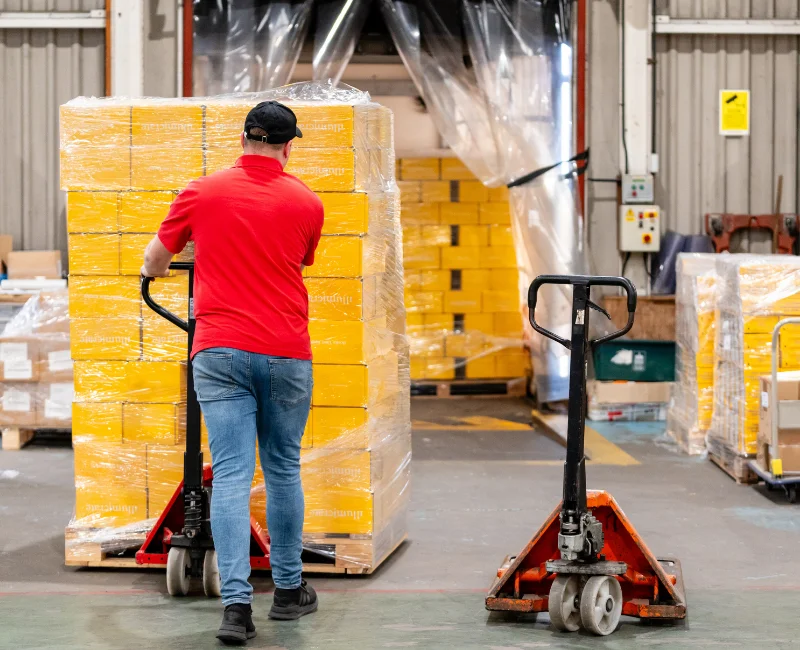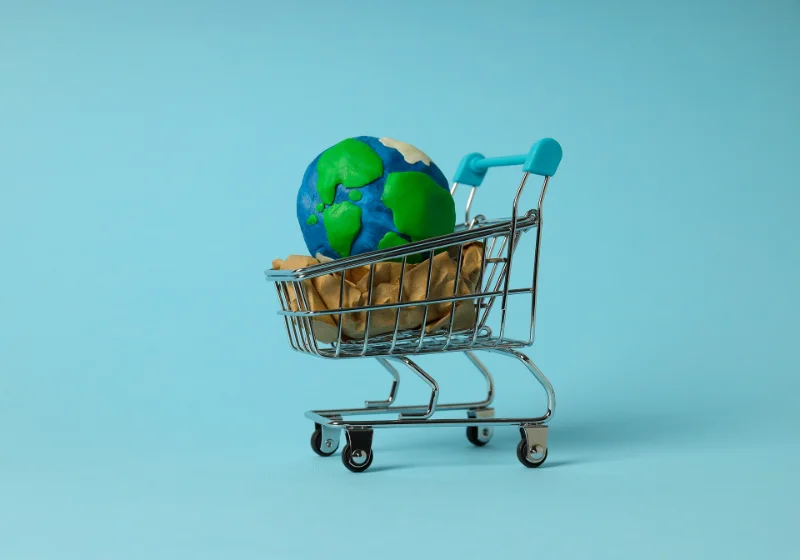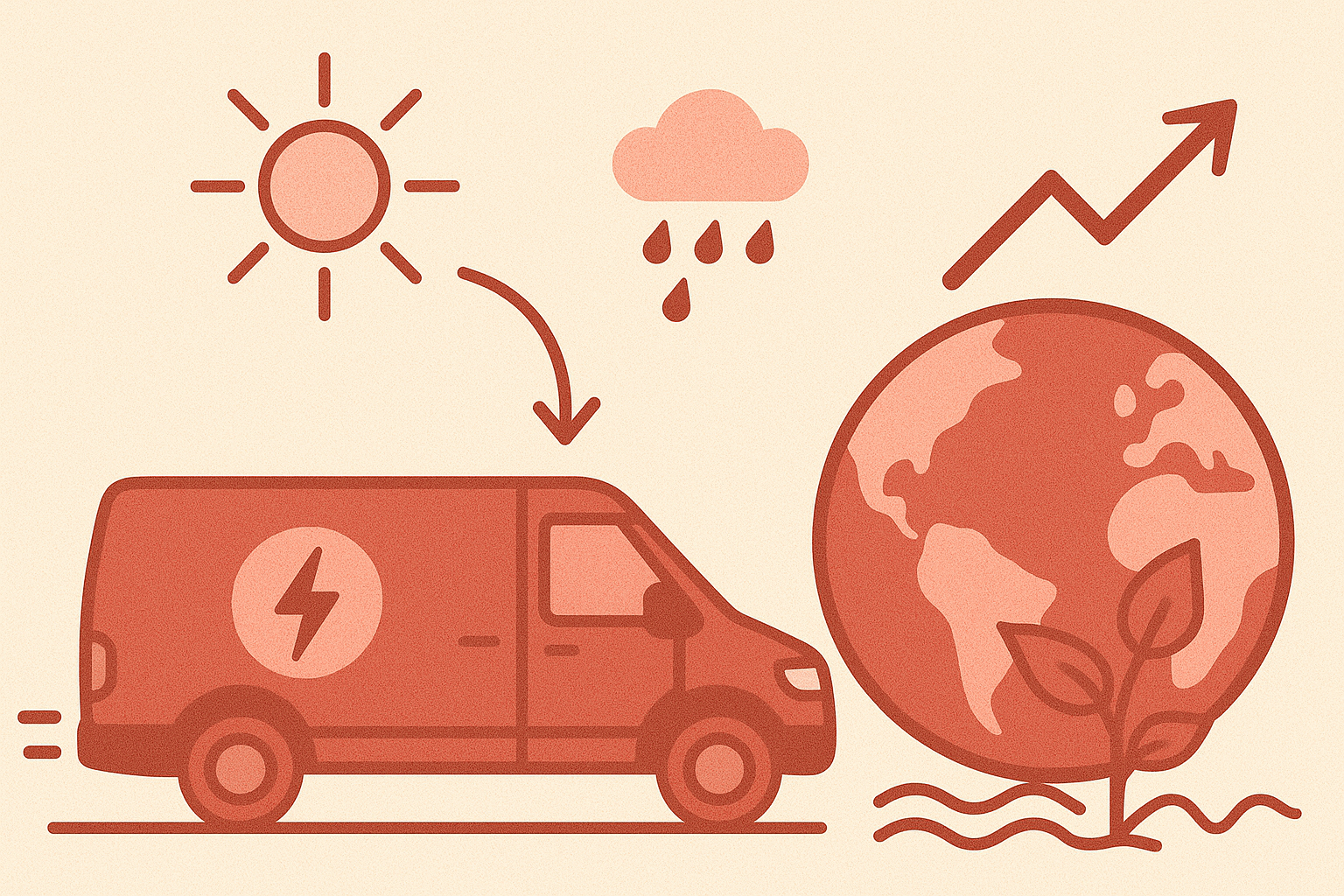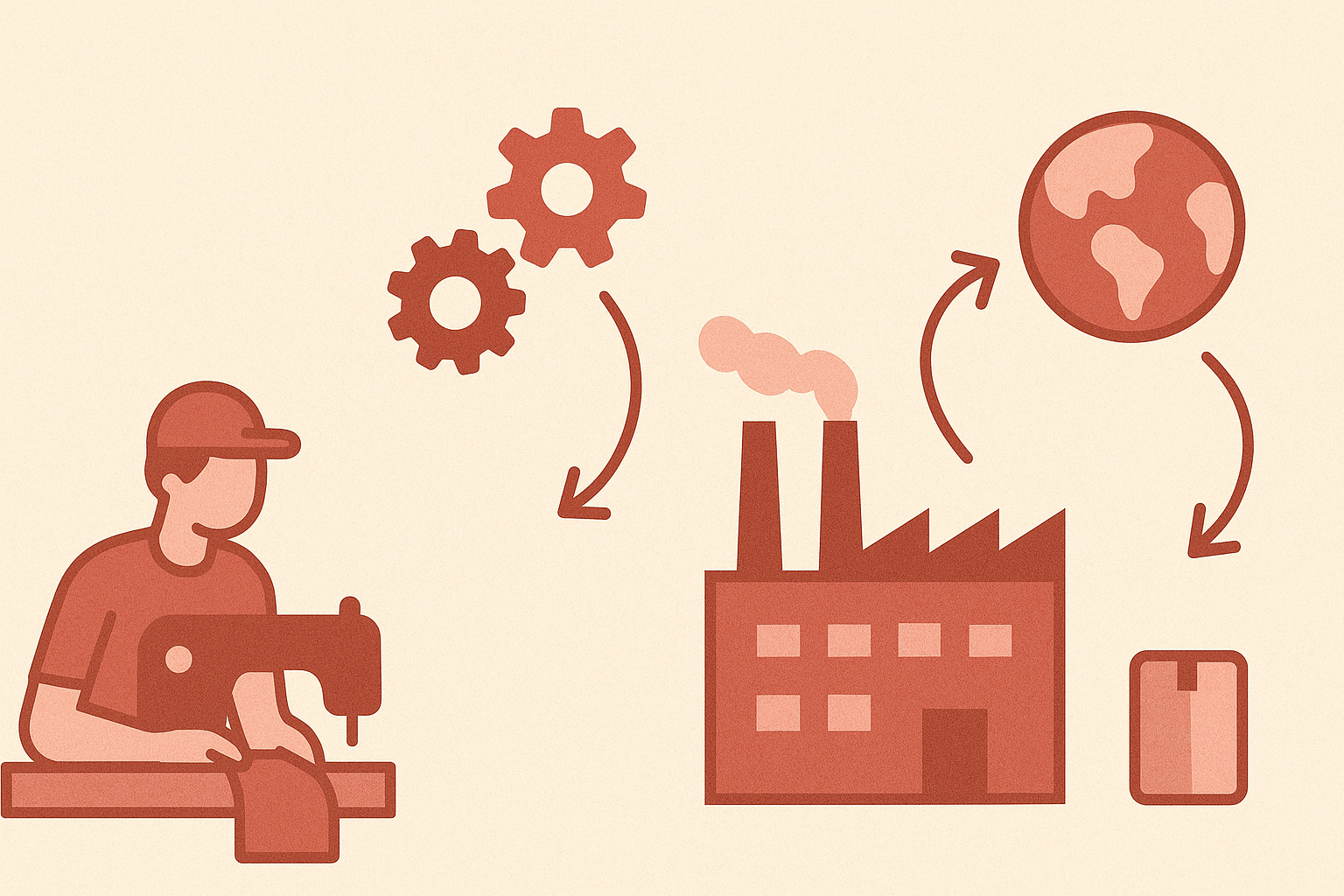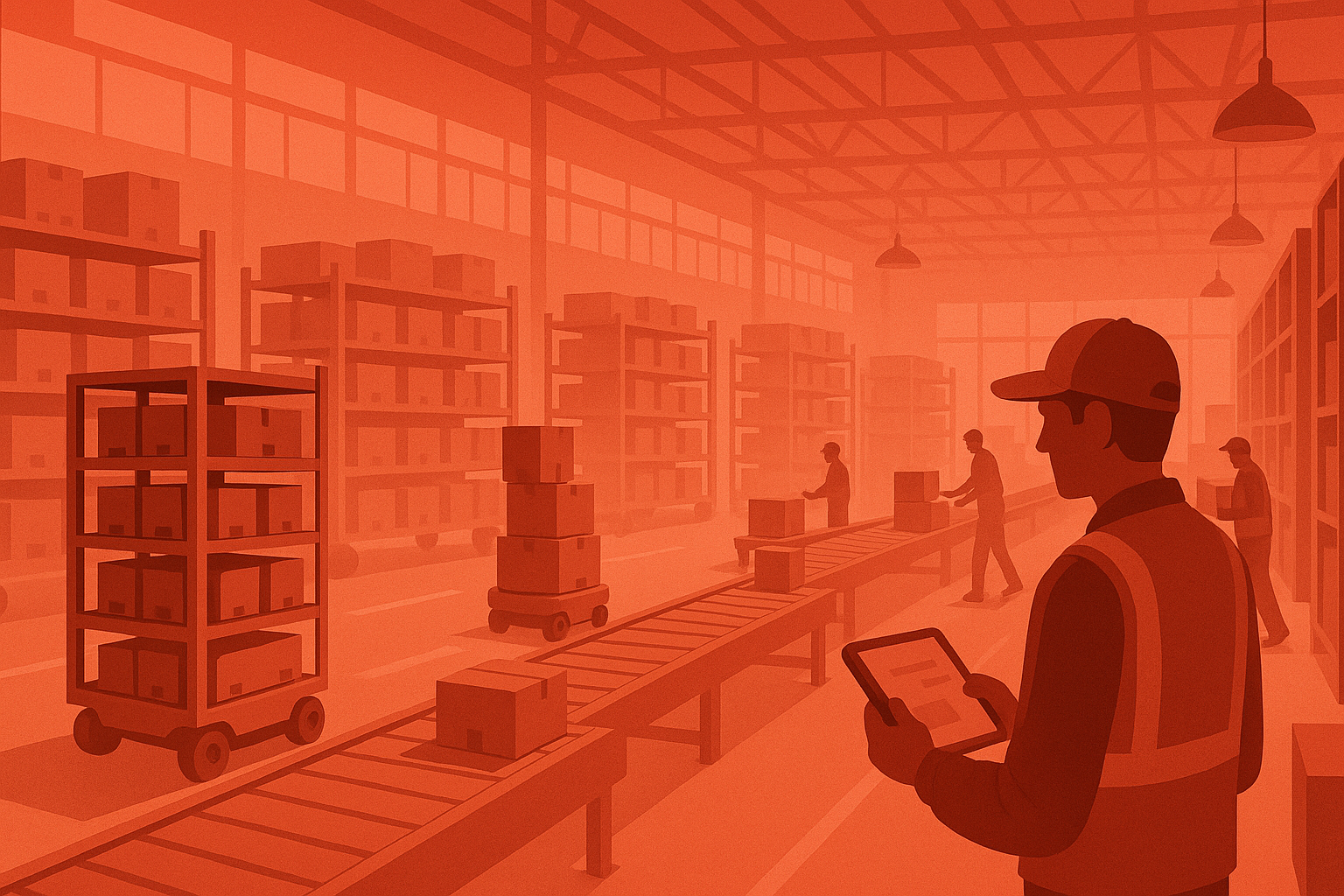There’s no doubt that online shopping and home deliveries have been a lifesaver since the global pandemic began, but it’s also had harmful effects on our planet. Unfortunately, the carbon cost of home delivery casts a dark, smoggy cloud over the convenience of online shopping. As the eCommerce industry continues to grow, every courier company has a responsibility to tackle its carbon emissions and work towards greener operations.
How Green Is Your Parcel?
Transport is responsible for a significant chunk of the UK’s carbon emissions, and courier companies play a big role in driving this. Despite actions being taken to “Go Green”, most delivery trucks and vans in the UK are currently still powered by fossil fuels. Consequentially, the fulfilment process of sending goods from the warehouse to consumers involves emitting large quantities of carbon dioxide into the atmosphere. Every online order contributes towards the UK’s daily carbon emissions, and due to the pandemic, delivery emissions have rapidly increased since 2019.
Faster delivery options such as same-day delivery, while convenient, involve small vehicles going around the country delivering small quantities of orders, increasing carbon emissions. While free delivery may be offered to the consumer, the cost of delivering their goods is absorbed by the seller and the environment. The environmental impact of the delivery-intensive shopping culture that has emerged must be tackled quickly to help the UK achieve net zero greenhouse emissions by 2050.

Is Next-Day Delivery Bad for the Environment? A Balanced Perspective
The demand for next-day delivery has surged in recent years, but is it bad for the environment? The reality is complex.
On one hand, next-day delivery can lead to inefficient delivery packing, meaning more vehicles on the road carrying partially filled loads. This results in higher carbon emissions compared to consolidated deliveries, where multiple orders are bundled together for optimal efficiency. Additionally, the urgency of next-day delivery means that businesses often resort to using air freight, which has a significantly larger carbon footprint than road or rail transport.
However, some companies are optimising their next-day delivery services by adopting green logistics solutions. For instance, automated warehouse systems can organise parcels more efficiently, ensuring that delivery vehicles leave the fulfilment centres at full capacity rather than making multiple trips. EC Group and other companies are constantly exploring and investing in eco-friendly delivery strategies, such as electric vehicle fleets, to reduce the environmental impact of fast shipping.
Ultimately, next-day delivery is not inherently bad for the environment—it depends on how it is managed. Businesses that prioritise sustainability strategies, such as efficient delivery packing and route optimisation, can mitigate the carbon footprint associated with rapid shipping.
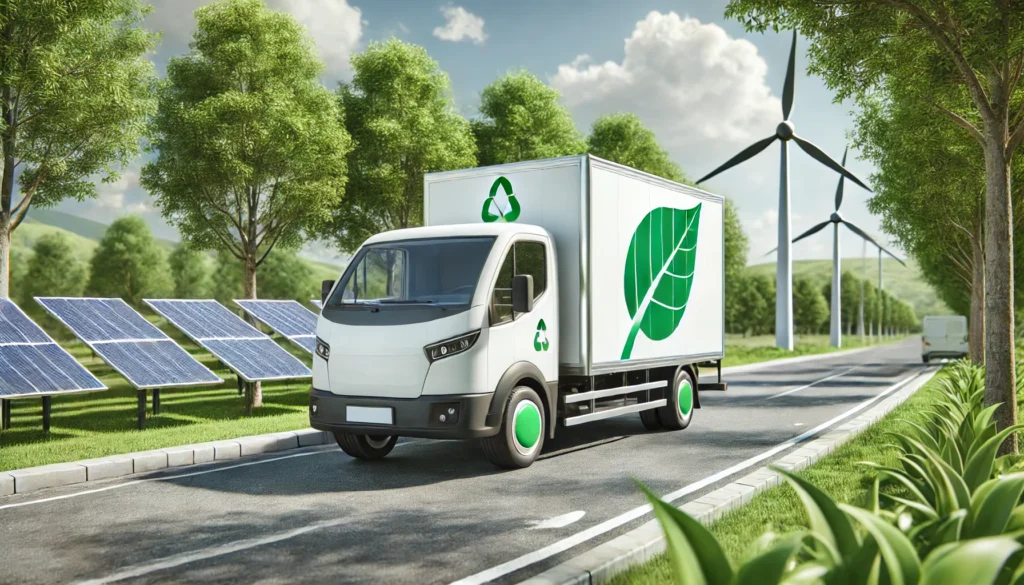
Delivery Emissions and Brand Loyalty
Delivery company, Yodel recently found that younger consumers are more conscious about their impact on the environment while shopping online. Yodel’s report states that “More than half (53%) of 18-34s said they’d be more inclined to purchase if the delivery company focused on reducing its emissions.” The study also found that 42% of online shoppers surveyed would happily wait longer for their order if it resulted in a reduction in carbon emissions.
The results from Yodel’s study highlight that delivery emissions have the potential to drive brand loyalty amongst online shoppers. Partnering with a sustainable courier company may actually increase customer retention and generate more repeat orders. Moreover, sustainable delivery options may be provided with a bit more leeway from customers regarding delivery times, leading to fewer negative reviews.
Royal Mail Is The Most Sustainable Courier
According to research, Royal Mail is the most carbon conscious delivery company in the UK. It has the largest ‘fleet on the street’ network, with 90,000 postal workers on foot. The company invested in 295 electric vehicles and recently announced that 29 gas-powered trucks would be added to its fleet to reduce its carbon footprint. Not stopping there, Royal Mail has fitted over 11,000 vans with telemetry technology designed to promote fuel-efficient driving styles. Monitoring the van’s acceleration, speed, turning and braking patterns, the technology provides feedback to the driver to help them reduce their driving emissions.
How Are Other Courier Companies Adapting?
Much like Royal Mail, other courier companies are also investing in a greener future. Each year, DPD has invested in one thousand diesel Mercedes Sprinter vans to expand its fleet, but the company plans in buying electric vehicles moving forward. DPD claims that it has already achieved 100% carbon neutral parcel delivery across Europe. The courier company analyses its carbon footprint per parcel and takes measures to reduce it while funding clean energy projects around the world to offset the remaining emissions.
To reduce its emissions, Yodel has implemented similar technology to Royal Mail to calculate the most fuel efficient delivery routes and promote environmentally friendly driving. Elsewhere in the market, Amazon has set ambitious goals regarding transforming its operations. The company intends to operate using 100% renewable energy and have 50% of its shipments emitting net zero carbon by 2030. The eCommerce giant has pledged to purchase 100,000 electric delivery vehicles and invest $100 million in climate mitigation projects.
Here’s a list of ways courier companies are reducing carbon emissions:
- Technology which calculates the most efficient route and analyses driving styles
- Electric vehicles
- Gas-powered vehicles
- Replace delivery vehicles with drones
- Parcel lockers
- Energy-efficient distribution centres and offices
- Local deliveries by bike or foot
- Filling delivery vehicles to maximum capacity
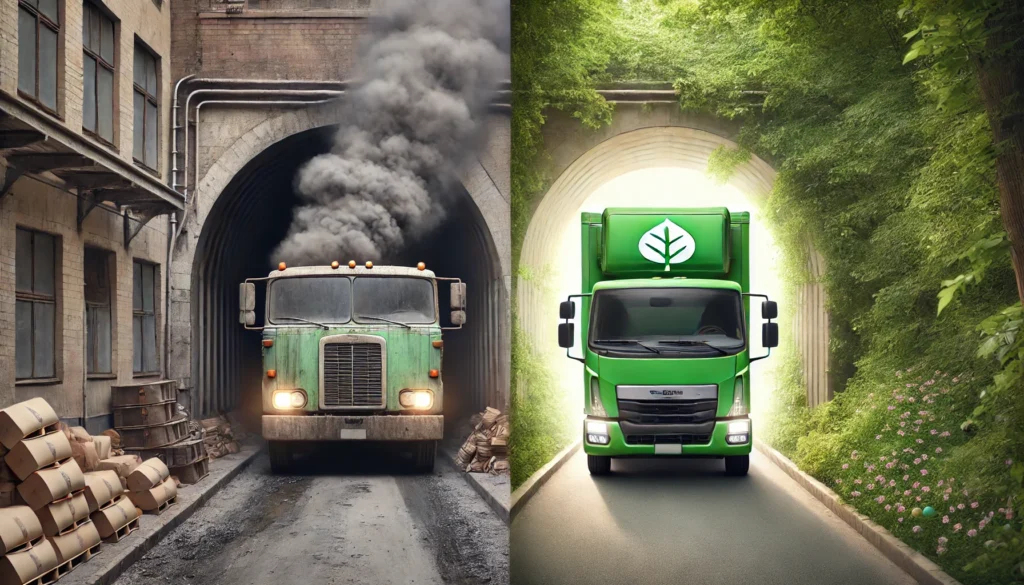
Alternative Packaging: An Overlooked Sustainability Strategy
While much of the sustainability conversation focuses on vehicle emissions, alternative packaging plays a crucial role in reducing the environmental impact of deliveries. Many eCommerce businesses still use excessive plastic packaging or oversized boxes, leading to unnecessary waste and inefficient use of delivery space. EC Group pack services actively promote the use of ethically sourced packaging materials. Are you interested? Get in touch now.
Some sustainable packaging alternatives include:
- Biodegradable and compostable packaging made from cornstarch, mushrooms, or seaweed.
- Minimalist packaging that reduces unnecessary filler materials.
- Recyclable and reusable packaging to encourage circular economy practices.
By implementing an eco-friendly delivery strategy that includes environmentally-friendly packaging, businesses can significantly cut down on waste and improve their sustainability credentials. Explore our services and see what area of your business we can help optimise.
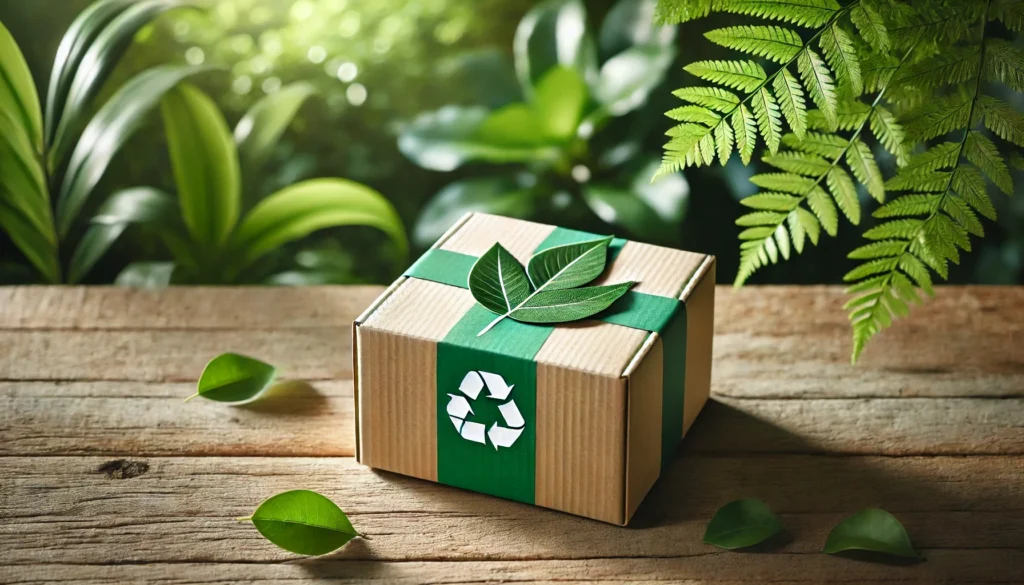
How To Develop an Eco-Friendly Delivery Action Plan
Implementing an eco-friendly delivery action plan is essential for businesses looking to improve their green logistics. This involves:
- Analysing Current Emissions – Understanding your company’s carbon footprint.
- Investing in Sustainable Vehicles – Transitioning to electric or low-emission delivery vehicles.
- Optimising Routes & Packing – Using efficient delivery packing methods to maximise vehicle capacity.
- Switching to Alternative Packaging – Reducing plastic waste and choosing environmentally-friendly packaging options.
A well-structured sustainability strategy helps businesses align with net-zero goals while enhancing their brand reputation.
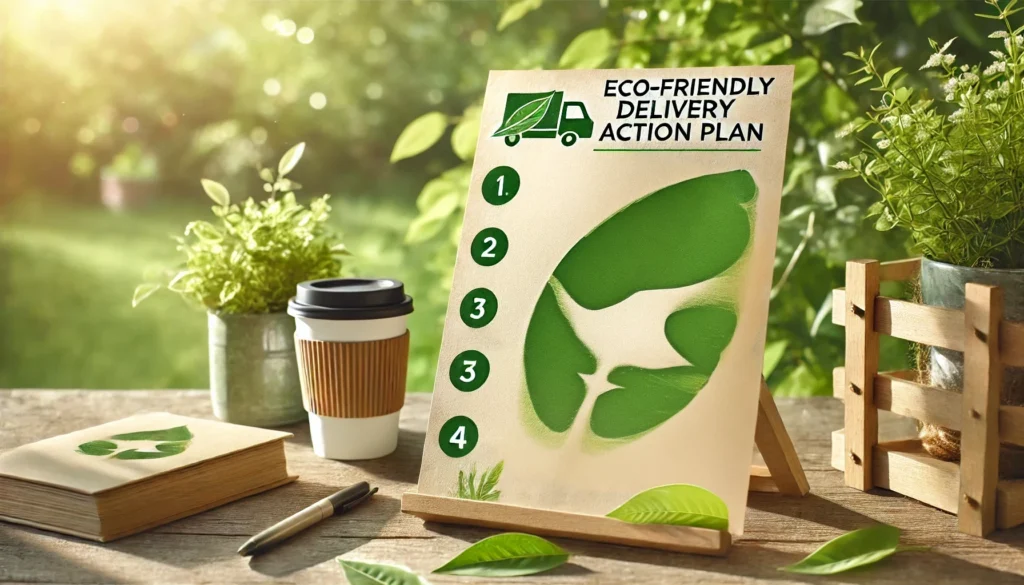
Summary
Emerging technology is set to revolutionise fulfilment warehouses and help eCommerce businesses meet the rapidly rising volume of online orders. Over the coming years, these technological innovations will become increasingly efficient and more commonly used.
Technology has allowed eCommerce businesses to:
- Improve warehouse operational efficiency
- Make life easier for warehouse operatives
- Reduce picking times
- Increase picking accuracy
- Reduce costs
- Provide a better service to customers
If you’d like support in any aspect of your eCommerce fulfilment, please contact us.
